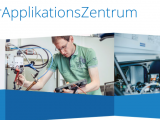
Are we facing a war of delivery robots?
8. Juli 2021Are we facing a war of delivery robots?
New York, 8.7.2021
Delivery robots – still a foreign word in Europe – are conquering more and more cities and neighborhoods in the USA. Since they are almost exclusively autonomous vehicles, they have to be tested extensively before they can be used. So far, their use does not seem to have caused any problems or damage. But because the number of delivery vehicles in use is growing almost explosively and a new, very lucrative market segment is opening up here, it is safe to assume that we will see a war of delivery robots very soon. Here are the figures:
According to ABI Research, the global mobile robotics market is expected to reach $158.6 billion by 2030 and will include 15 million autonomous mobile robots, most of which will use some form of AI technology.
And here’s where the action is now:
FedEx enters multi-year partnership with Nuro. FedEx announced a multi-year partnership with autonomous startup Nuro. The plan is to test Nuro’s next-generation bot, which will one day be used for deliveries from FedEX-owned operations.
Nuro, founded in 2016 by Google alumni Dave Ferguson and Jiajun Zhu, has been testing its vehicles in Phoenix and Houston for the past two years, including for FedEx deliveries.
The new multiyear contract focuses on last-mile package delivery. FedEx said advances in automation can help improve the safety, efficiency and productivity of its employees.
In addition, Nuro plans to offer paid deliveries on public roads in California starting next year. To do so, they became the first company in the state to receive approval for a driverless service.
Heineken has the talking cooler bot. Heineken recently unveiled its talking „Beer Outdoor Transporter,“ or B.O.T. for short. It can store beer and autonomously follow its owner with the help of motion sensors. Apparently, it can avoid any obstacle. Its „tools“ include a touchscreen, cameras and sensors.
The robotic vehicle weighs 70 pounds and can travel 15 miles per charge. It has two modes: autonomous and operator-controlled.
Heineken will not sell the AI bots to the public. Rather, the company will ship an undisclosed number of them to winners of a sweepstakes that ended July 1.
A similar mobile robot, developed by Piaggio Fast Forward, can carry up to 40 pounds. The Boston area startup first unveiled its Gita prototype in 2017 and began selling the bots commercially in 2019.
Refraction AI, developer of the REV-1 delivery robot, has expanded to Austin, Texas. The startup had previously only tested deliveries in Ann Arbor, Michigan, where it is based.
The REV-1 bot has three wheels, weighs 150 pounds and is 4.5 feet tall and 4.5 feet long. It can travel up to 15 miles per hour and carry a load of up to 16 cubic feet, or about six grocery bags.
Refraction’s pilot program includes a fleet of 10 robots delivering pizza and more in Austin’s South Congress, Downtown and Travis Heights neighborhoods. Customers can order from Southside Flying Pizza and other restaurant partners and select robot delivery as an option at checkout.
In March, Refraction raised $4.2 million for research and development, expanding its customer base and building operations in Austin. Luke Schneider, Refraction’s CEO, is based in Austin.
Postmates X, the robotics division of the meal delivery service acquired by Uber last year, was recently spun off as a new company called Serve Robotics. It now delivers in West Hollywood and other areas.
Driverless delivery robot maker Starship Technologies recently raised $17 million after completing its one millionth autonomous delivery. Its „coolers on wheels“ are in use on more than 15 college campuses and at Save Mart in Modesto.
Pennsylvania is the latest state to allow delivery robots to share sidewalks with humans. A recently enacted law classifies autonomous robots as pedestrians, making it at least the 10th state (plus D.C.) to explicitly pass legislation allowing robots to operate.
Kiwibot’s four-wheeled rovers are now delivering Chick-fil-A in the Santa Monica area. The fast-food chain says it’s using the latest version of the semi-autonomous robot, which has enhanced lights, cameras and the ability to wink at its animated screen.
Although it’s too early to tell, Kiwibot hopes to deploy it at more locations later this year or next, COO Diego Varela Prada said.
Prada said the average Kiwibot delivery costs $1.99 and takes 30 minutes. So far, the company has made 150,000 food deliveries with 400 robots.
For certain tasks, such as crossing the street, the robots still need to be supervised remotely by human attendants.
Kiwibot also announced other initiatives, including a partnership with Shopify companies to make deliveries in Detroit, Los Angeles, Miami, Pittsburgh and San Jose. Kiwibot is also working with Segway to further develop and produce its technology.
Gideon Brothers, a Croatian robotics and AI startup, raised $31 million for its autonomous, 3D vision-based mobile robots designed for warehousing, manufacturing, logistics and retail. The fresh capital will help Gideon expand into the U.S. and Europe.
Gideon’s autonomous mobile robots (AMRs) can pick up, transport and drop off products in warehouses and other industrial locations. The company will use the fresh funding to further develop and commercialize its AMRS and open new offices in Munich and Boston. Koch Disruptive Technologies, the venture and growth arm of Koch Industries, led the financing round with participating firms DB Schenker, Prologis Ventures and Rite-Hite.
Amazon is taking a close look at its delivery robots. Amazon announced plans for a new research and development center for its autonomous delivery bot, Scout. The company plans to open the Scout Development Center in Helsinki, Finland, to develop 3D software that „simulates the complexity of real life.“ Goal: Scout should be able to navigate more safely.
Amazon is currently testing the all-electric, refrigerator-sized robot for deliveries at four U.S. locations, including Atlanta, Georgia, and Franklin, Tennessee. The six-wheeled bots navigate sidewalks to deliver packages, replacing human delivery drivers.
Under the new program, engineers in Helsinki will develop new technologies for Scout, along with the Amazon Scout R&D Lab team in Seattle and others in Cambridge, U.K., and Tübingen, Germany.
Amazon also recently unveiled four new robots to help reduce injuries in its warehouses, named after popular characters from Sesame Street and the Muppets.
Ernie saves employees time when picking items from robotic shelves and has been shown to reduce injuries. Bert is an autonomous mobile robot (AMR) that can autonomously transport items through the warehouses, while Scooter and Kermit are AMRs designed to transport shopping carts.


